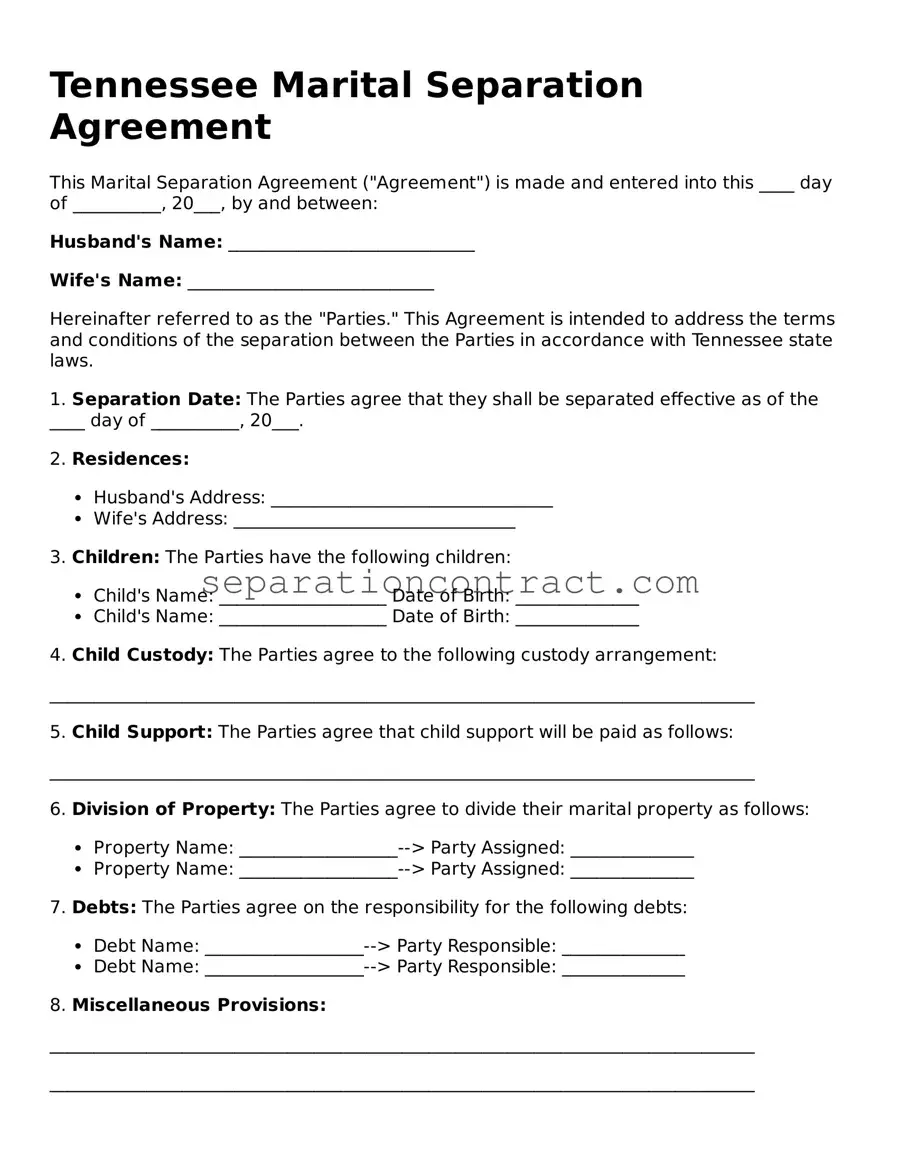Valid Marital Separation Agreement Form for the State of Tennessee
A Tennessee Marital Separation Agreement form is a legal document that outlines the terms and conditions of a couple's separation. This agreement helps clarify issues such as property division, child custody, and financial responsibilities. For those considering separation, filling out this form is an important step; click the button below to get started.
Fill Out Your Form Online

Valid Marital Separation Agreement Form for the State of Tennessee
Fill Out Your Form Online
Before exiting, complete the form
Finish your Marital Separation Agreement online — quick edits, easy save, instant download.
Fill Out Your Form Online
or
↓ PDF File
